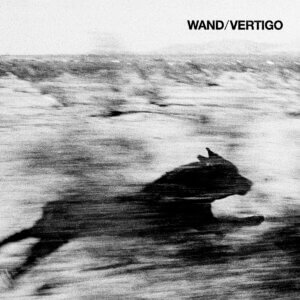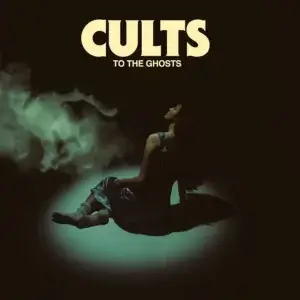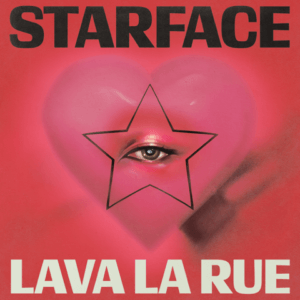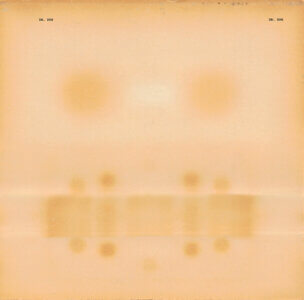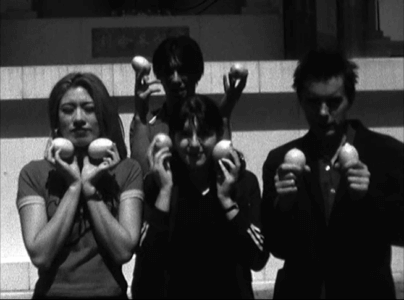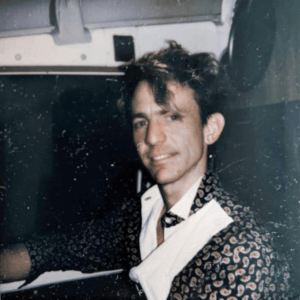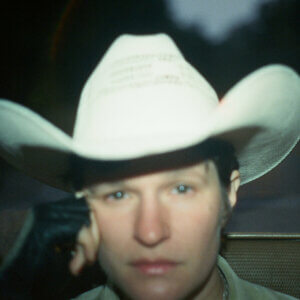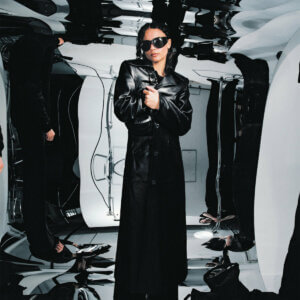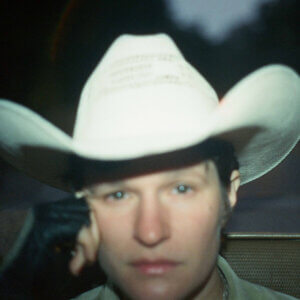Big Thief Stay True To Their Roots

James Krivchenia doesn’t handle lead vocals on any songs on Dragon New Warm Mountain I Believe In You, nor does he appear on every song. But the Big Thief drummer was a major driving force behind the acclaimed indie folk/rock band’s latest album. It was Krivchenia – who acted as producer – who came up with the idea to record the album in four different locations with four different engineers. The end result is a gorgeous 20-track double album that’s light on its feet and heavy on the heart.
I spoke with Krivchenia about the recording of Dragon New Warm Mountain I Believe In You, creating intention through songs, and his ventures in making ambient music.
This interview has been edited and condensed for clarity.
Northern Transmissions: I understand that the album was mostly recorded live. Were there any major changes that you made between when you were touring these new songs originally and when you recorded them for the album?
James Krivchenia: I would say the majority of them we didn’t really play that much live. But there were maybe four or five. The way we kind of operate live, there’s no sort of logic to it. It’s kind of just stuff Adrianne [Lenker] wants to play, or not play, and us sort of like following that kind of instinct. So, what ends up happening is, a lot of the time, it’s our first time really touching something when we record it. “Sparrow” we had played live and stuff like that. And those have more of the “you don’t have to think about it kind of energy,” where it’s like you’re just trying to sort of trick yourself into something happening, which is also a sound, too. There’s so many different ways to do it. But we end up kind of arranging a lot in the studio.
NT: When you’re playing a song when it hasn’t been released versus when it has been released, do you notice a big difference in audience reaction? I assume because they recognize it, it’s going to be more immediate later.
JK: We play a lot of new stuff live, and stuff as Adrianne’s writing it or working it out. Sometimes we’ll forget that the audience doesn’t know something, ‘cause it’s like, “Oh, we’ve been playing this song 10 nights in a row or whatever.” But it’s like, “Oh yeah, it’s not available for consumption.” It’s kind of a balance. We definitely like some of that feeling. It asks for an amount of attention and focus, and a muscle to be exercised of like, “Oh, I haven’t heard this. I like this band. I know all their music. What is this?” You kind of can feel people lean in a little when you’re doing stuff that’s not out or on a record.
Now, we are popular enough where the diehards in the front know all the unreleased shit anyway from, like YouTube videos. So, that’s like an interesting spin. So, some song that Adrianne wrote like a week ago, and people know it the next week because they just watched YouTube videos of it. But there’s a different energy, for sure.
NT: Did you ever expect it to reach the point where an unreleased song would be getting a mythos of its own?
JK: Definitely not expecting that [laughs]. But there’s so many aspects to things I think are really cool but wasn’t necessarily expecting. But I enjoy that. It’s nice for us too to keep it fresh and strange for ourselves, to not follow the typical “All right, Dragon New Warm Mountain – time to play all these songs and then a couple hits.” I like that we’ve sort of stepped to this thing of like, “Let’s play what feels good.” Oftentimes, the songs everyone likes, [do] feel really good, you know? [laughs]. But let’s also just play what we wanna play. And if that means, like, a set of no rockers and all slow ones, ‘cause there’s just this energy or it’s like, “No, I can’t rock right now.” It’s like, “All right, let’s do that.” Or, if it’s like, “Let’s do a bunch of new songs.” It’s like, “Let’s not be precious.” I’m more interested in people hearing it and sharing it and having this sort of natural pull to it than a press campaign for a new song.
NT: So, the album has been out for a few days now. And I have to imagine that every day, you’re getting constant positive feedback. Is that accurate?
JK: Yeah, definitely around the release for sure. There’s a lot of positive reinforcement.
NT: Are you accustomed to that? Is it kind of like, “Okay here comes all the plaudits”?
JK: It’s kind of expected, a little bit. Because, at this point, we know how the press cycle kind of works and the build-up to it and stuff like that. There is a lot of positive affirmation about it. For me, it’s like how to navigate how much of that to take in. It’s nice to know, like “Oh, people like the record.” It makes you feel good to get a bunch of reviews or something, but there’s some sort of net disassociating effect that happens if you’re too much – like if I find myself reading about Big Thief, I’m just like, “Wait, like what? This is so weird because we’re actually just right here.”
Even positive stuff, I feel slightly hesitant to give too much weight to, just to stay in touch with how I feel about it. Because it can be easy to be like, “Everyone loves it!” So, I’m trying not to read too much press.
NT: I see a lot of people making comparisons to other double albums like The White Album and Tusk. How do you feel about that?
JK: That’s just the way people work in a lot of ways. You need like, frame of reference points to compare stuff. I like those albums, so it’s like, “Cool, that’s awesome.” But it is just sort of random at some point. And I’m kind of more concerned about it really meaning or having some sort of physical or emotional impact on people, rather than how it’s canonized. Because I’m always a little suspicious of the canon anyway. [laughs].
NT: I understand that you had 45 songs recorded for this, and you had to pare it down to 20. What kept those other 25 out?
JK: I think what really kept them out, in the end, was just this feeling that, regardless of how many songs the record was gonna be, there’s only so much music that we felt it made sense to take in of us before you start going cross-eyed and “enough Big Thief” kind of feeling. It kind of felt like a double album was sort of the maximum of that. Not even for trying to put ourselves in other people’s shoes but just for ourselves, of listening to a sequence. It became pretty clear early on, “This shouldn’t be a triple album. I can’t listen to that much music, and I’m in the band.”
It sort of seemed like the right length for the scope of the project. But then, like, in terms of what made it and didn’t make it, it was just sort of trial and error. And we were all making sequences and our friends were making sequences. And eventually, in the end, a lot of really amazing ones got left off. We each had our own little favorites that didn’t make it. It kind of felt like the right amount and the right stuff.
NT: Was it particularly agonizing, or was it kind of like, “Whatever we put out is what we put out”?
JK: It had moments of agonizing-ness. “Agonizing,” maybe not the right word, but with listening to that many sequences and trying to sequence it. This is true for a single or a double album of just like anyone trying to sequence their record: it’s really hard to maintain perspective on the music when you’re listening to it that much, and you’re constantly trying to get this new perspective of like, “Maybe I’ll listen to this sequence in the car, or maybe over in the kitchen.” That’s the hardest part, doing sequencing, is just maintaining some sort of perspective on your music where you’re still enjoying it or getting something out of it.
NT: Will the song that didn’t make the album appear elsewhere?
JK: I’m sure that they’ll see the light of day at some point, sooner rather than later. We’ve talked a bit about not wanting to be like 70, and [old man voice] “Putting out the archives!” It just feels different in this day and age, and why not just have it all out there? For us, it’s a matter of balancing that feeling of “Get it all out there. Who cares?” versus “There’s such a lack of focus that we want to put something in front of people that has a lot of intention in it.”
NT: Since the album was recorded in different places around the country, were there specific reasons for choosing each place you recorded in?
JK: I think at the heart of the “where” was the “who” in a lot of ways, like the different engineers we wanted to work with. And then, finding a place that made sense. Usually, it was their own house or whatever. It was peak COVID times, so there [were] also all these logistic hurdles to navigate. We did really want each place to feel different, just sort of give us this sense of traveling and moving and entering a new space, and having a new energy in the environment to react to. And just knowing that that would do something on a deeper psychological level to the music that you can’t really put your finger on but which would keep it fresh as we were going from session to session.
NT: Once you came up with the idea for the project, how did 4AD, your label, take it? Did they have any issue with that?
JK: They were really supportive of it. They heard the basic idea and they were like, “All right, let’s do it.” And they were very supportive throughout it. I think it probably went over budget a bit too, just from unforeseen logistical hurdles of like, “Oh shit, we have to quarantine and get an Airbnb!” It’s like, all this stuff around that. So yeah, they were very supportive throughout.
NT: Were there any kind of specific memories from recording that just really stick out with you?
JK: I have a specific memory with the song “Change.” Adrianne wrote that one at the Telluride, Colorado studio where we were recording. And it was like an off-day or a day where we were starting late or something. And it was one of those things where everyone’s kind of scattered and Adrianne’s writing, and we’re giving her space to write. I remember her coming down and being like, “I think I got something, like, good.” And I was like, “All right, let’s do it.”
NT: Was it a pretty smooth recording process overall?
JK: For how long and crazy it was, it definitely was pretty smooth. There’s always some hiccups along the way, and stuff you have to get through for sure. It was definitely hard and by the end, we were just completely tapped of energy to give. [laughs]. So, it was exhausting but in a way that felt like a healthy sort of exhaustion, where we needed to get all this stuff and move on from these songs and these ideas. It felt like we were pretty thorough in this aspect.
NT: It definitely sounds like a Big Thief album, because you have all these hallmarks that are very much yours. But you have these expansions of sounds where some songs have sort of a trip-hop vibe. Are you going into that, being like, “Okay, we need to put on a song that sounds like this.” Or, does it just naturally form?
JK: It definitely just sort of naturally happens. We don’t really go in with a plan of “We should have a bunch of X, Y, and Z. It just sort of happens.
NT: Were you listening to anything that gave you particular inspiration?
JK: We’re always sort of listening to all sorts of music. We do have this rule while we’re recording where we don’t listen to other music on the monitors, like the mains, ‘cause it usually just bums you out in this way, where it sounds so good. Especially if it’s in the studio where you’re working and trying to create something that’s not actually done being created, and you’re trying to have this creative energy. And then you hear something that’s done and amazing, and it’s deflating, because you’re thinking back to the last listening like, “Ours doesn’t sound that good, like not even close.”
And then you just start tripping yourself out in all these ways that’s just backtracking from the actual process, where it’s like “Is our snare messed up? How do we get the vocals to be more forward?” The human mind just can’t help but to compare to other things. So, to navigate that, we’re like, “No outside music on the mains.” Obviously, lots of outside music elsewhere. But, in the studio, it’s just our music, and we’re trying to make our music sound as good as it can. And it’s not gonna sound like the Beatles or whatever. [laughs]
NT: You’re the one who came up with this album concept. How did that make you feel in terms of any kind of pressure, if at all?
JK: I think it added a layer of pressure, probably. But, I wasn’t really concerned about us getting something great. As long as we show up, and it feels okay, and we’re sort of set up to feel good and okay, I know something good will happen. So, it’s mostly just a matter of really thinking about how to set us up – I know it sounds corny – but for success. Not in the sense of making a hit record but just in terms of showing up somewhere where we all feel comfortable and ready to play music and excited.
NT: I think that’s a key strength of the record, because a lot of albums, even good ones, can feel self-conscious. Like they clearly wanted to make a statement. They wanted to really say something. Here, it’s like, “here’s our songs.” That seems to be what a lot of people are responding to. They just feel this comfort, this camaraderie, naturally. It doesn’t feel forced.
JK: There is a sound to people trying too hard, and it’s not that great of a sound, in my opinion. The way I think of it is stuff that feels more like actually embodied, versus stuff that’s trying to convince you of it. If a song and a performance and the songwriter or the performers actually feel like they’re embodying what they’re saying and it’s coming from them, and not “I need to make a statement” or “I need to be dangerous.” You can feel when it’s like, “Oh, they’re trying to do this thing, but they’re not.” And you can kind of feel that little gap between.
And it’s hard, because you want to push to not just make records about cooking breakfast, you know? [laughs]. All artists, I think, do that sort of thing, where you’re trying to push, but you’re also trying to come back on what you can actually give. So, it’s a balance.
NT: Do you have a certain philosophy as a drummer?
JK: Hearing the voice and playing around the voice is very important, because as people, we are deeply attuned to that part of the music especially. Which isn’t to say the other parts aren’t as important. But there’s a certain part of our brain that’s trying to follow the singer, emotionally, beyond just the lyrics but emotionally and focus-wise. So, I think about playing around the voice a lot and accentuating it and getting out of the way of it when it needs to shine. It’s important for me to know the song and know the structure really well to be able to play around the singing.
NT: I wanted to ask about your ambient music. It’s very tactile, like the sounds you use. How did that start, and what inspires it?
JK: I was getting really into, like, spa radio and Muzak, into in a way where it’s like I was just listening to it like, “Oh, some of this stuff is so nice.” Listening to all this ambient stuff before sleeping on the tour bus. Noticing that I was really seeking out, as I think a lot of people were, music with a very specific purpose of “I need this to calm me down,” which I think a lot of people have gravitated towards that kind of music for. I wanted to just explore that feeling while trying to make something that wasn’t necessarily long and calming but more this sort of attempt at it. Because I feel there is a sort of gulf between what we’re trying to get out of that kind of music, and how we’re actually kind of experiencing reality.
NT: So, you’re about to go on tour. How long will that be for?
JK: It’s pretty short, actually, because we’re just going to the U.K., because some of the Europe stuff got canceled. So, I think it’s just a week-and-a-half, two weeks. Something like that.
NT: Are you looking forward to it?
JK: I am. I am. I’m excited. I’m always excited for tour just to see our crew again, like our soundpeople and tour manager and stuff. And Jess, our tour manager in the U.K., we haven’t seen since literally the first day of COVID when our Europe tour got canceled. So, it’ll be nice to be like, “Hey, what have you been up to?” One of those weird COVID exchanges, which I’m sure you’ve had a lot of too. But I’m excited to see the people, and I’m excited to just be in the U.K. again. I see it in movies or TV shows, and I’m like, “Aw, I used to go there a lot. And there’s stuff I miss about that place.”
NT: Do you think it’s going to be a while before you do extended months-long tours again?
JK: We’ve got some stuff planned, nothing that’s a month, more like, three weeks, is the longest. We definitely got some stuff planned for this year to try and play as much as possible and logistically feasible and safe. But I think now everyone just has the mindset of keeping their expectations pretty tempered. So, if stuff happens, amazing. If it gets canceled, that’s all right, fuckin’ pandemic [laughs].
Dragon New Warm Mountain I Believe In You is out now on 4AD. Check out Big Thief’s upcoming tour dates HERE
Latest Reviews
Tracks
Advertisement
Looking for something new to listen to?
Sign up to our all-new newsletter for top-notch reviews, news, videos and playlists.
